Is Lavender Safe for Cats? A Comprehensive Guide
Lavender is a popular and calming plant, known for its soothing fragrance and versatile uses in aromatherapy, cooking, and home décor. But if you’re a cat owner, you might wonder: is lavender safe for cats? In this article, we’ll delve into the effects of lavender on cats, explore potential risks, and offer practical advice on how to keep your feline friend safe.
What is Lavender?
Lavender (Lavandula) is a flowering plant renowned for its pleasant aroma and therapeutic properties. It’s often used in essential oils, candles, and as a natural remedy for stress and anxiety. Lavender’s calming scent makes it a favorite in many households, but when it comes to pets, particularly cats, it’s important to understand its potential effects.
How Does Lavender Affect Cats?
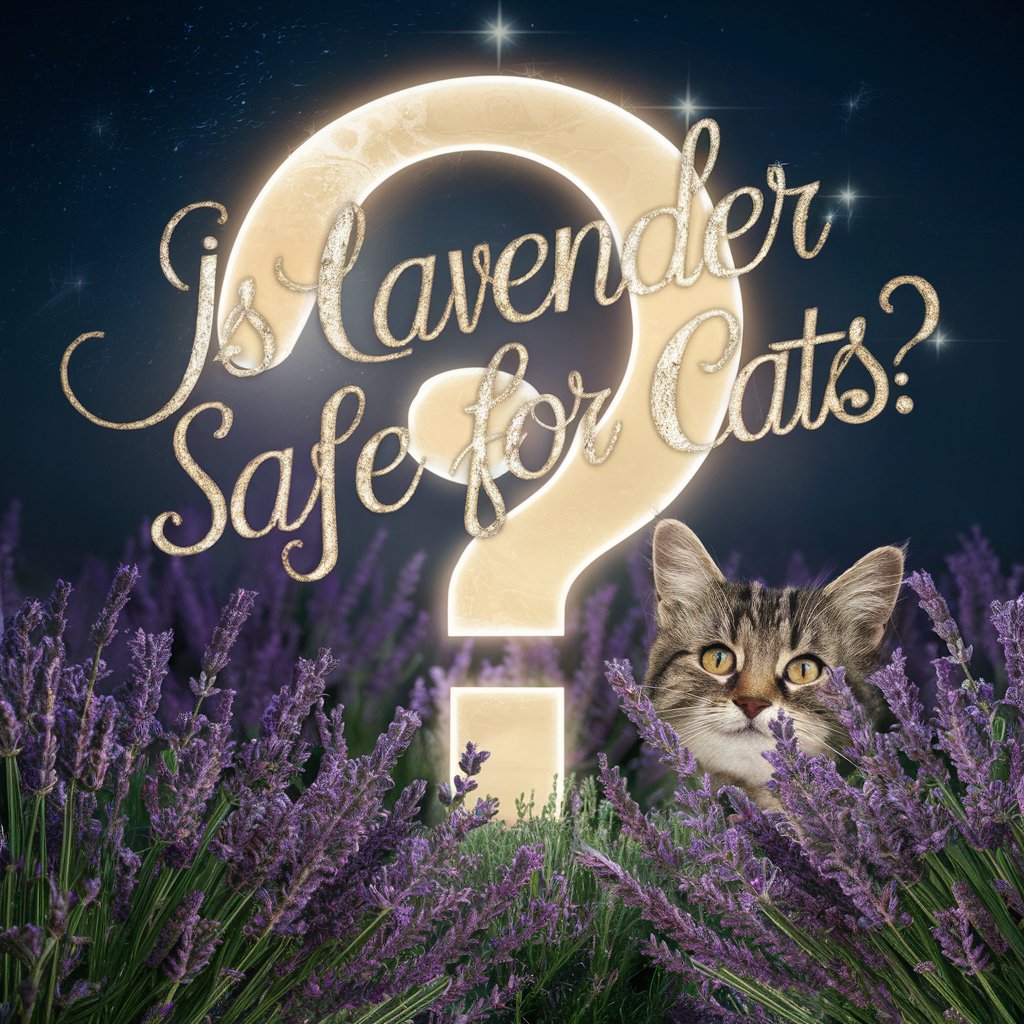
1. Lavender and Cats: The Basics
Lavender contains essential oils, which are concentrated plant extracts. While lavender is generally considered safe for humans in moderate amounts, the same cannot always be said for cats. Cats are more sensitive to essential oils due to their unique metabolic processes. is lavender safe for cats? This sensitivity can lead to various health issues if they come into contact with lavender or its derivatives.
2. Potential Risks of Lavender for Cats
- Toxicity: Lavender essential oil is toxic to cats if ingested or absorbed through the skin. The primary compounds in lavender that pose a risk to cats are linalool and linalyl acetate. These substances can cause gastrointestinal upset, lethargy, and in severe cases, more serious health issues.
- Respiratory Irritation: The strong scent of lavender can be overwhelming for cats and may cause respiratory irritation. This can manifest as coughing, sneezing, or difficulty breathing, particularly if the lavender is used in concentrated forms like essential oils.
- Skin Reactions: Direct contact with lavender essential oil can lead to skin irritation in cats. Symptoms might include redness, itching, and inflammation. Cats with pre-existing skin conditions may be more susceptible to these reactions.
Symptoms of Lavender Poisoning in Cats
Lavender poisoning in cats can occur when they are exposed to lavender essential oil or ingest parts of the lavender plant. is lavender safe for cats? It’s important to recognize the symptoms early to ensure your cat receives prompt medical attention. Here are the common symptoms of lavender poisoning in cats:
- Vomiting: Lavender poisoning can irritate a cat’s stomach, leading to vomiting. This may be accompanied by nausea or a decreased appetite.
- Diarrhea: Gastrointestinal upset from lavender exposure can also cause diarrhea. Your cat may have frequent, watery stools.
- Loss of Appetite: If your cat is feeling unwell due to lavender poisoning, they may lose interest in food and water, leading to a noticeable decrease in appetite.
- Excessive Drooling: Lavender can cause oral irritation, resulting in excessive drooling or salivation. This can be a sign that your cat’s mouth or throat is irritated.
- Lethargy: Cats affected by lavender poisoning may appear unusually tired or weak. They may show reduced activity levels and a lack of interest in play or interaction.
- Difficulty Breathing: Exposure to concentrated lavender essential oils can cause respiratory issues. Symptoms may include coughing, sneezing, or labored breathing.
- Skin Irritation: If lavender essential oil comes into contact with your cat’s skin, it can lead to redness, itching, or inflammation. Your cat may try to scratch or bite at the affected area.
- Tremors or Seizures: In severe cases of poisoning, you might observe tremors or seizures. This is less common but indicates a more serious reaction that requires immediate veterinary care.
Keeping Your Cat Safe from Lavender
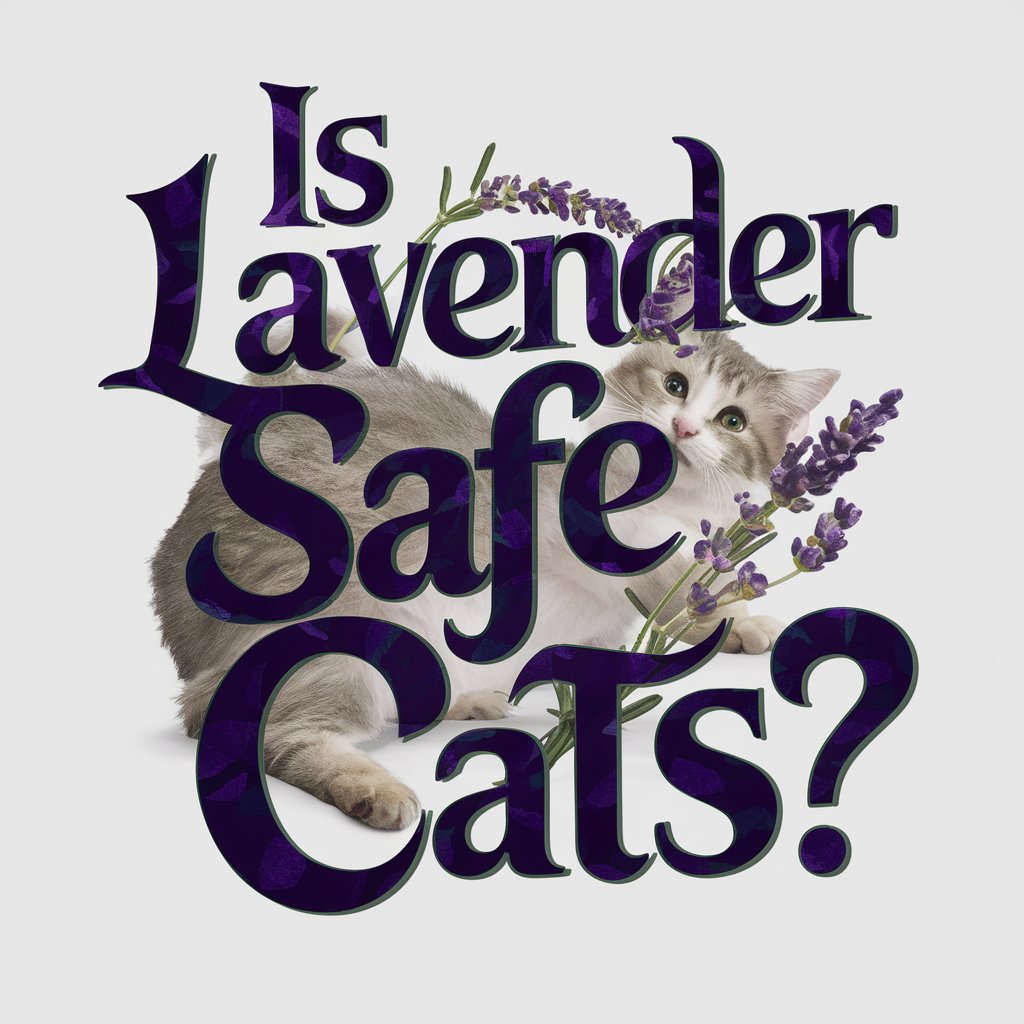
1. Avoid Essential Oils Around Cats
One of the best ways to ensure your cat’s safety is to avoid using lavender essential oil in your home. Is lavender safe for cats? Essential oils can be particularly dangerous when used in diffusers, as they release concentrated vapors that can be harmful to cats.
2. Be Cautious with Lavender Products
Be mindful of lavender-scented products, such as candles, air fresheners, and cleaning supplies. Even if these products are not directly applied to your cat, the scent alone can cause respiratory issues or other health problems.
3. Safe Alternatives
If you’re looking for calming scents that are safe for cats, consider using cat-friendly herbs like catnip or valerian root. These herbs are safe and can have a soothing effect on your feline friend.
What to Do If Your Cat is Exposed to Lavender
If your cat has been exposed to lavender, whether through ingestion, direct contact, or inhalation, is lavender safe for cats?
1. Remove the Source
Act Quickly: The first step is to remove your cat from the area where the lavender exposure occurred. If lavender essential oil or lavender-scented products are present, take them away to prevent further exposure.
2. Check for Symptoms
Observe Your Cat: Look for any signs of lavender poisoning, such as vomiting, diarrhea, loss of appetite, excessive drooling, lethargy, difficulty breathing, or skin irritation. Identifying symptoms early can help in determining the severity of the exposure.
3. Wash the Area
If Contacted: If your cat’s skin or fur has come into contact with lavender essential oil, gently wash the affected area with mild soap and lukewarm water. This helps to remove any residual oil and reduce irritation.
4. Provide Fresh Water
5. Monitor Your Cat
Keep a Close Eye: After exposure, monitor your cat closely for any changes in behavior or health. Watch for symptoms of poisoning and note any new developments.
6. Contact Your Veterinarian
Seek Professional Help: If you notice any symptoms of lavender poisoning or if you’re unsure of the severity of the exposure, contact your veterinarian as soon as possible. Provide details about the exposure, including how much lavender your cat came into contact with and any symptoms observed.
7. Follow Veterinary Advice
Medical Guidance: Follow any instructions provided by your veterinarian. They may recommend specific treatments, such as inducing vomiting if ingestion occurred, administering medications, or providing supportive care.
8. Prevent Future Exposure
Safety Measures: To prevent future incidents, avoid using lavender essential oils or lavender-scented products in areas where your cat has access. If you have lavender plants in your garden, ensure your cat cannot reach them.
9. Educate Yourself
Stay Informed: Understanding which plants and substances are toxic to cats can help you create a safer environment for your pet. Familiarize yourself with common household toxins and keep potentially harmful items out of reach.
10. Maintain a Pet-Friendly Home
Safe Environment: Create a pet-friendly home by opting for safe alternatives to lavender, such as catnip or Valerian root, if you’re looking for calming scents. Regularly check your home for potential hazards and keep your cat’s health and safety a priority.
Lavender Plants in Your Garden
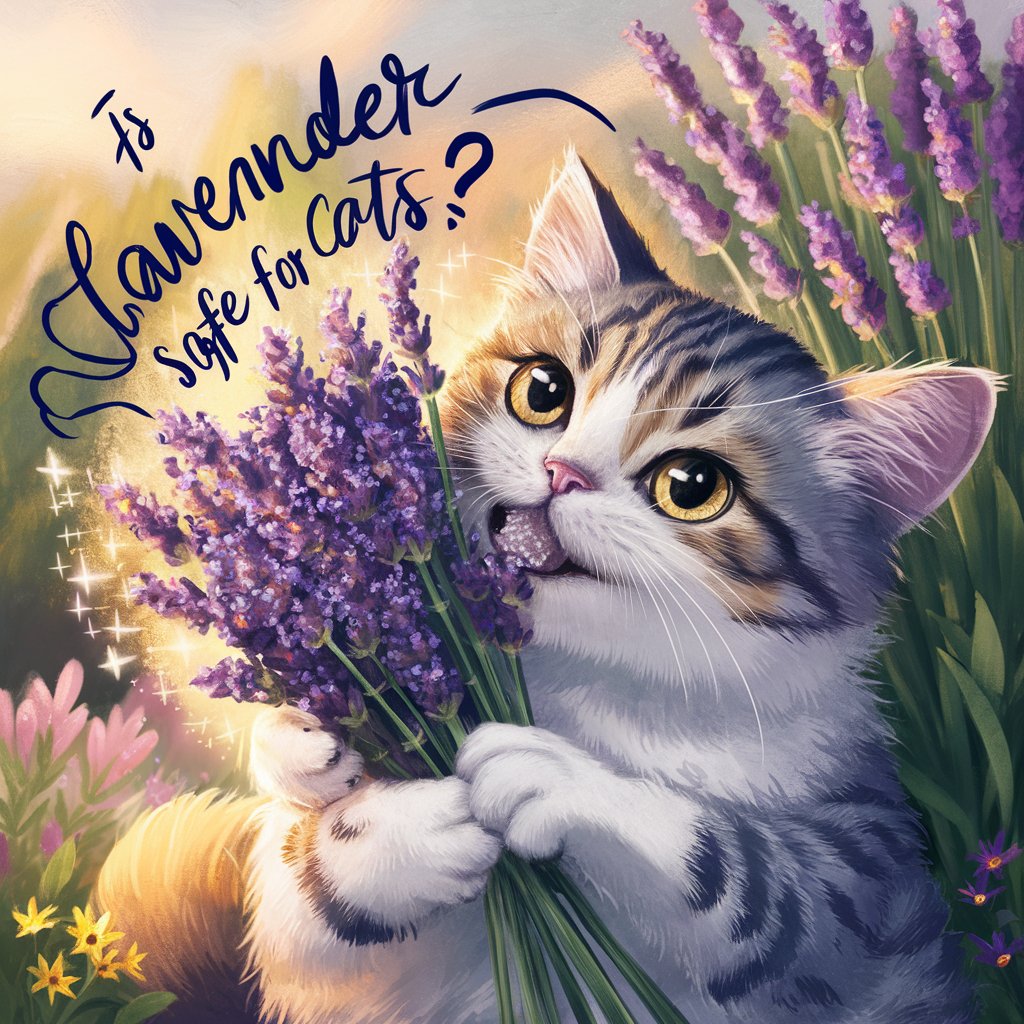
1. Preventing Access
If you grow lavender in your garden, take measures to prevent your cat from accessing the plants. Cats are naturally curious, and they may chew on or dig around plants, increasing their risk of exposure.
2. Safe Gardening Practices
Ensure that your garden is free from any plants or substances that could be harmful to your pets. Regularly check for signs of chewing or digging in areas where toxic plants are present.
Lavender and Cat Behavior
Lavender is widely known for its calming and soothing effects on humans, but its impact on cats can be quite different. is lavender safe for cats? Understanding how lavender might affect your cat’s behavior can help you make informed decisions about using this plant in your home. Here’s an overview of how lavender interacts with feline behavior and what to watch for:
1. Lavender’s Calming Effects on Humans
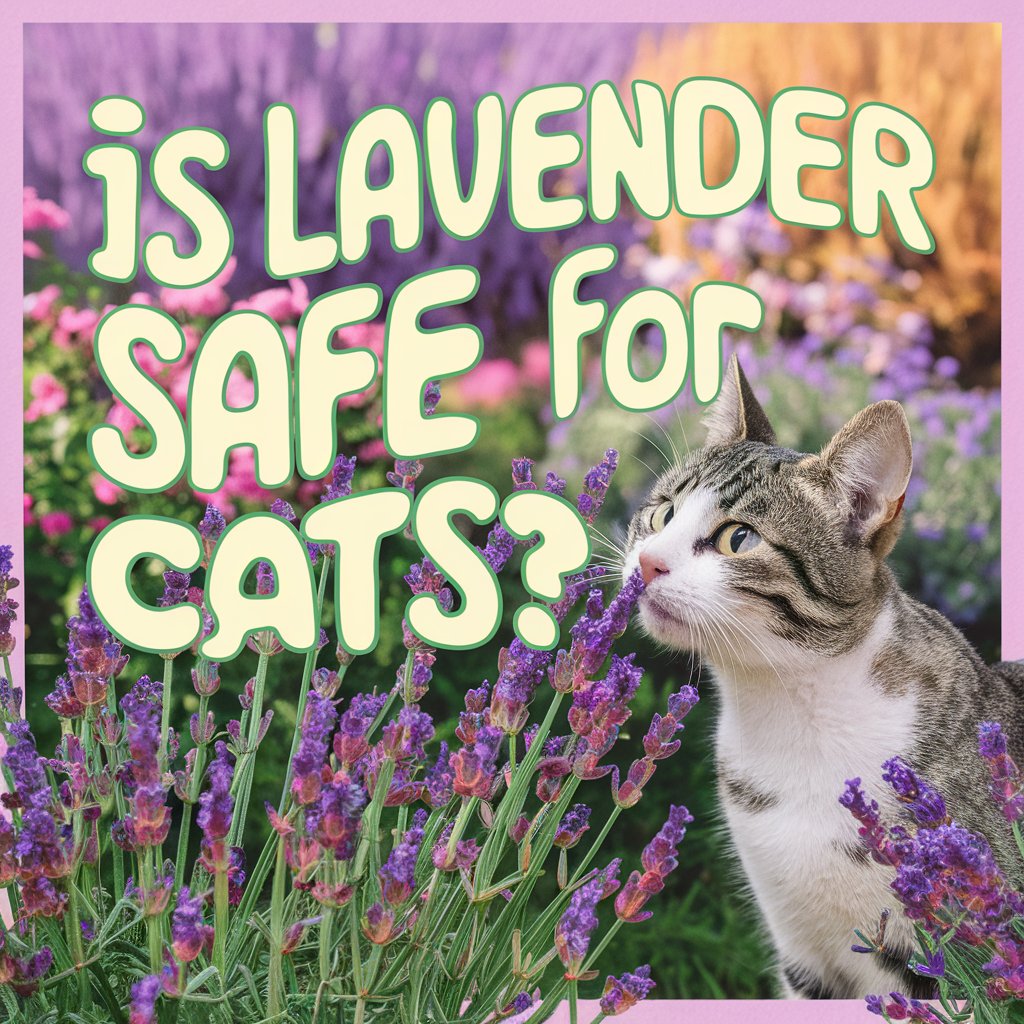
Human Perspective: For many people, lavender is used to promote relaxation and reduce stress. Its essential oils are often found in aromatherapy products and are believed to have a soothing effect on the mind and body.
2. How Lavender Affects Cats
Sensory Sensitivity: Cats have a highly sensitive sense of smell, which means they experience scents much more intensely than humans do. Lavender’s strong aroma might be overwhelming or unpleasant for them.
Behavioral Changes: Exposure to lavender can cause various behavioral changes in cats. These may include:
- Restlessness: Instead of calming your cat, the strong smell of lavender may make them feel uneasy or restless.
- Avoidance: Cats may avoid areas where lavender is present, such as rooms with lavender-scented products or plants.
- Unusual Behavior: Some cats might exhibit unusual behaviors, such as hiding or becoming more vocal, in response to the scent.
3. Lavender and Cat Health
Respiratory Effects: The potent aroma of lavender can potentially irritate a cat’s respiratory system. Symptoms like coughing, sneezing, or wheezing may occur if the lavender scent is too strong or if your cat is exposed to it for prolonged periods.
Gastrointestinal Issues: If a cat ingests lavender, either by chewing on the plant or consuming lavender-containing products, they might experience gastrointestinal upset. This can cause symptoms such as vomiting or diarrhea.
4. Observing Your Cat’s Reaction
Monitor Behavior: Pay attention to how your cat reacts when exposed to lavender. If you notice any signs of distress or discomfort, it’s best to remove the lavender and observe if the symptoms improve.
Comfort Measures: If your cat shows signs of stress or irritation from lavender, try to provide a calm and quiet environment. Ensure they have a safe space where they can retreat and feel secure.
5. Alternatives to Lavender
Cat-Friendly Scents: If you’re looking for calming or enriching scents for your cat, consider using alternatives that are known to be safe, such as:
- Catnip: Known for its stimulating effects, catnip can provide enrichment and enjoyment for many cats.
- Valerian Root: Another herb that can have calming effects on cats without the risks associated with lavender.
Safe Products: Opt for pet-safe products designed specifically for cats. These products are formulated with their sensitivities in mind and are less likely to cause adverse reactions.
6. Creating a Safe Environment
Avoiding Lavender: To prevent any potential issues, it’s wise to avoid using lavender essential oils, scented candles, or lavender plants in areas where your cat spends a lot of time. This helps ensure that your cat remains comfortable and free from any negative effects associated with lavender.
Pet Safety: Regularly review your home environment for potential hazards and ensure that your cat’s health and well-being are always a top priority.
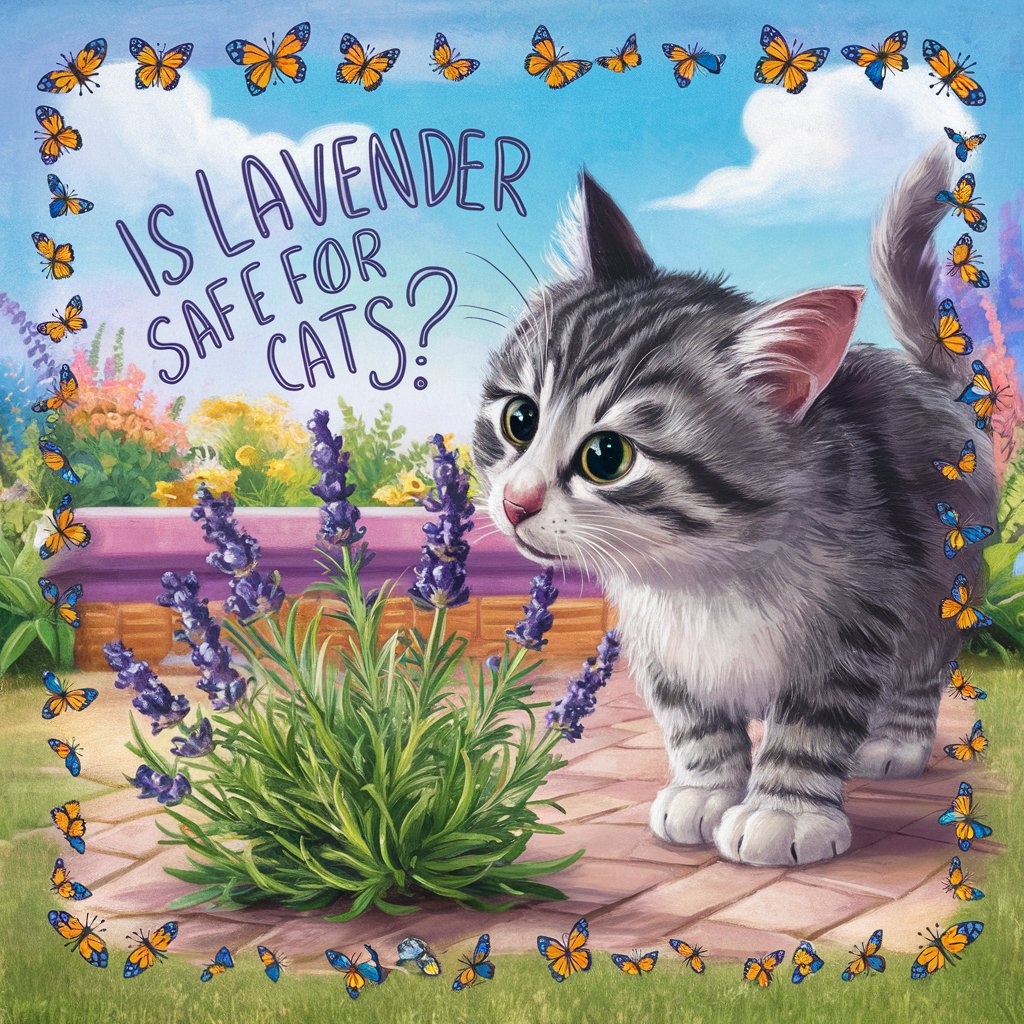
Conclusion: Is Lavender Safe for Cats?
In summary, lavender is not entirely safe for cats due to the potential risks associated with essential oils and concentrated scents. While the lavender plant itself is less toxic than its essential oil, it’s still important to be cautious and mindful of your cat’s health. By avoiding essential oils, using cat-friendly alternatives, and monitoring your cat’s exposure, you can help ensure a safe and comfortable environment for your feline companion.
FAQs: Is Lavender Safe for Cats?
- Is lavender safe for cats to smell?
Lavender is not safe for cats to smell; it can cause respiratory irritation and discomfort. - Why is there lavender in cat food?
Lavender is rarely found in cat food; if included, it’s in minimal amounts and often for flavor or potential calming effects. - Is lavender like catnip to cats?
No, lavender is not like catnip; it does not have the same stimulating effects and may be irritating. - What essential oil is safe for cats?
Most essential oils are not safe for cats. Consult a vet, but cedarwood and frankincense are sometimes considered safer in very diluted forms.
Are Tulips Toxic to Cats?

Welcome to Hypocats.com! I’m Khawar Akhtar, a passionate writer dedicated to all things feline. With a deep love for cats and a keen interest in their health, diet, and training, I strive to provide cat owners with valuable insights and practical advice to enhance their furry friends’ well-being. My goal is to share my expertise and enthusiasm for our whiskered companions, helping them lead happier, healthier lives. When I’m not writing, you’ll find me spending quality time with my Russian Blue cat, enjoying the simple joys that come with being a cat lover. Thank you for visiting Hypocats.com—I hope you find the information here as helpful and inspiring as I do!


Leave a Reply